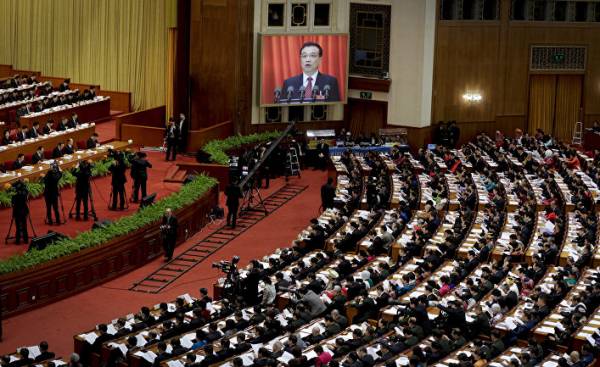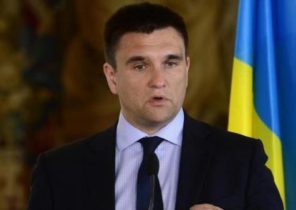
The Prime Minister of China would need 90 minutes to read the report on the work of the government, but You can find them for much less time.
Premier of the state Council of China Li Keqiang will likely put stability over other political objectives in its annual report Sunday. This is due to changes in the leadership of the Communist party, which take place every five years and which will take place at the end of this year.
Report on Whether the government will provide the outside world evaluation of the Beijing economy and its priorities in the field of defense and foreign policy, which this year is especially foggy in light of the new US administration, Donald trump, European national elections and the upcoming British exit from the EU.
In past reports also included brief comments about the Affairs in Hong Kong, who are often struck by residents. Hong Kong residents will be particularly on the alert a few weeks before the election of the next chief Executive.
How to read an annual report If
Often If takes about one and a half hours to read his annual report, which consists of 20 thousand words, legislators and political advisers. But there are no shortcuts, which will help you to understand the main points in just a few minutes.
First of all, skip the first half. This is an overview of the achievements of the past year.
Then there are the economic objectives of the government and its macroeconomic policies for this year. The following ten points you will get acquainted with the forecasts of Beijing’s economic growth, inflation, employment, fiscal deficits, and monetary policy.
Now go to the penultimate page. It is here that the Prime Minister often talks about foreign policy for the coming year, on defense and on the situation in Hong Kong and Taiwan. As a rule, this part of the report is very well written.
If you want to know more about social policy of Beijing and other political issues, you can turn a few pages back or read the reports the South China Morning Post for a deeper understanding of these issues.
What to expect from the current report
Because stability is put above all, Lee is likely to continue political continuity in economic reforms with a priority of proposals, development of innovation and entrepreneurship, as well as in the ongoing program of urbanization.
He is also likely to relate to the reforms in the financial sector, given the recent strong statements about the targeting of “crocodiles” — the tycoons who pull the financial strings behind the scenes.
The Prime Minister may also discuss measures of Beijing to promote its trade strategy of “one belt, one road” and the policy for foreign investment amid global worries about trade protectionism.
Past promises
For your convenience we also considered the promises of the Cabinet Li Keqiang in the last three years.
Reserved promises: the goals of growth, job creation, poverty reduction
Beijing establishes clear annual targets for annual economic growth, creating jobs in the cities and reducing the rural population, which lives below the poverty line.
And he kept those promises.
The report said the growth of approximately 7.5% in 2014 and 7% in 2015, while the actual increase will amount to 7.4% and 6.9%, respectively. Last year had promised to rise from 6.5% to 7%; the actual increase was 6.7%.
Beijing also kept its promise to begin construction of seven million housing units for low-income families in 2014, and 7.4 million in 2015. However, it does not set clear goals for this year.
Broken promises: the reform of public enterprises, the cooling of the property market
In his report, Lee has promised to reform state-owned enterprises every year, but we only saw a limited pilot program, allowing the market to play a greater role in state-owned enterprises. Meanwhile, the head of China, XI Jinping has repeatedly stressed that the party should play a more important role in state-owned companies, which is contrary to the intentions of the reform.
Premier Wen had also promised a healthy and stable housing market in each of the last three reports. A promise which was not kept. For example, in neighboring Hong Kong, Shenzhen, apartment prices increased by 39% in 2015 and 56% in the past year. Apartments in Shanghai and Beijing, which are already among the most expensive in the country last year rose by 20%.







